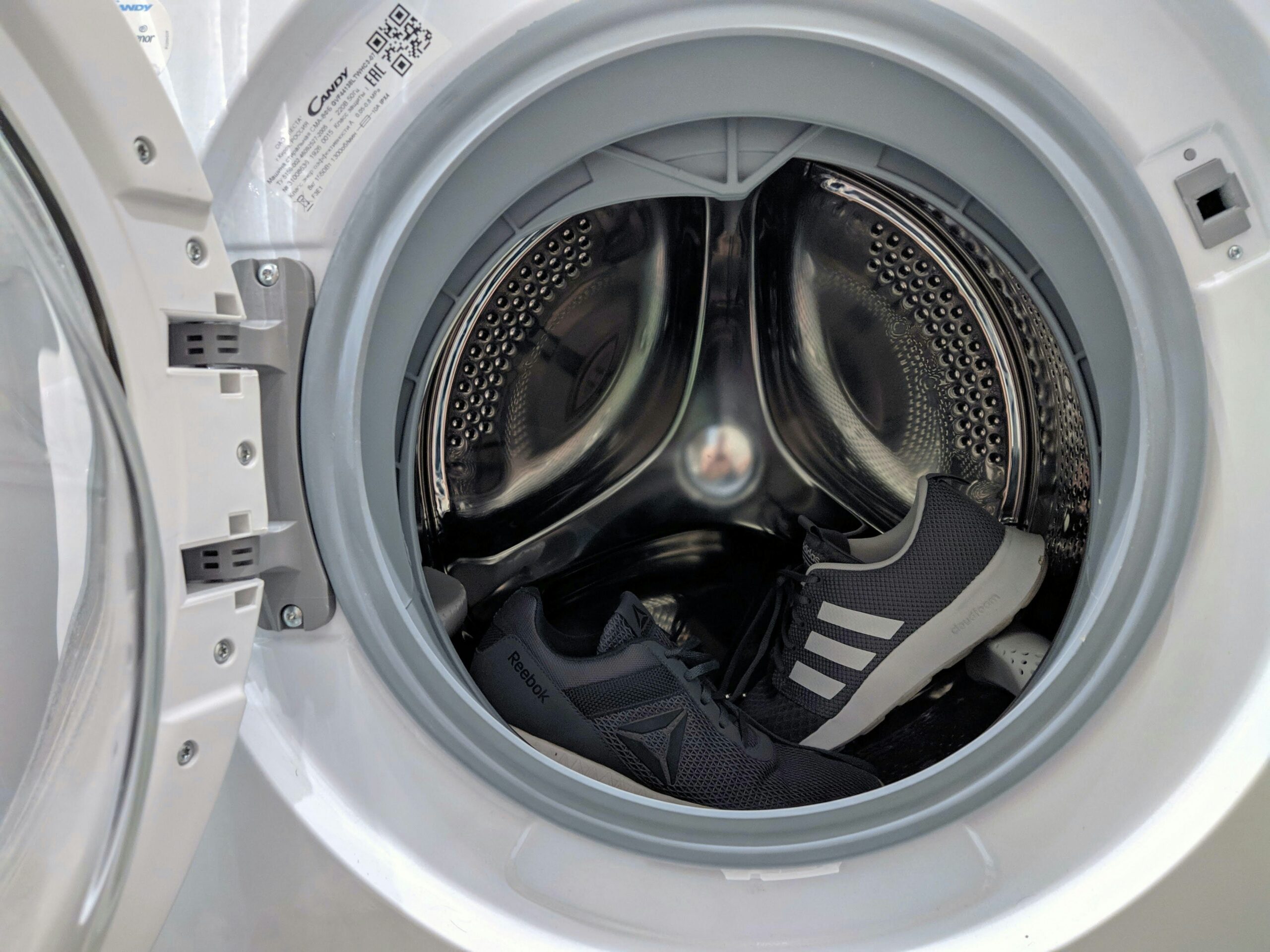Washer grinding noises can be quite alarming and can disrupt the peaceful environment of your home. These noises can range from a low rumbling sound to a loud grinding noise, and they can occur during both the wash and spin cycles of your washer. Understanding what causes these noises and addressing them promptly is crucial to prevent further damage to your washer.
Table of Contents
- Key Takeaways
- Identifying the Causes of Washer Grinding Noises
- Inspecting the Washer Drum and Bearings for Damage
- Checking the Washer Motor and Belt for Wear and Tear
- Examining the Washer Pump and Impeller for Debris and Blockages
- Troubleshooting Washer Grinding Noises during the Spin Cycle
- Addressing Washer Grinding Noises during the Wash Cycle
- Repairing or Replacing Faulty Washer Parts
- Preventing Future Washer Grinding Noises with Regular Maintenance
- Enjoying a Quieter and More Efficient Washer Performance
- Can Strange Sounds in My Washer Cause Grinding Noises?
- Can Water Dispenser Issues Cause Washer Grinding Noises?
- FAQs
- What causes a washer to make grinding noises?
- How can I diagnose the cause of the grinding noise in my washer?
- Can I fix the grinding noise in my washer myself?
- What tools do I need to fix the grinding noise in my washer?
- How much does it cost to fix a grinding noise in a washer?
- How often should I maintain my washer to prevent grinding noises?
The most common causes of washer grinding noises include damaged drum bearings, worn-out belts, and debris in the pump. These issues can lead to more serious problems if left unaddressed, such as leaks, motor failure, or even complete washer breakdown. Therefore, it is important to identify the specific cause of the noise before attempting any repairs.
Key Takeaways
- Washer grinding noises can be caused by various factors
- Inspect the drum, bearings, motor, belt, pump, and impeller for damage or debris
- Troubleshoot grinding noises during spin and wash cycles separately
- Repair or replace faulty parts to prevent future grinding noises
- Regular maintenance can help ensure a quieter and more efficient washer performance
Identifying the Causes of Washer Grinding Noises
To effectively address washer grinding noises, it is essential to identify the underlying cause. One common cause is damaged drum bearings. Over time, these bearings can wear out or become rusted, leading to grinding noises during the wash or spin cycles. Another common cause is worn-out belts. Belts can become frayed or cracked, causing them to slip or make grinding noises when in use. Additionally, debris in the pump can also lead to grinding noises. This debris can get caught in the impeller or clog the pump, causing it to work harder and produce unusual sounds.
Inspecting the Washer Drum and Bearings for Damage
To inspect the washer drum and bearings for damage, start by unplugging the washer and removing any clothing or items from inside. Then, open the door or lid of the washer and manually rotate the drum. If you hear any grinding or scraping sounds, it is likely that the drum bearings are damaged. You should also visually inspect the drum for signs of rust, cracks, or leaks. If any damage is found, it may be necessary to replace the drum or bearings.
Replacing damaged bearings or the drum can be a complex task and may require the assistance of a professional. However, if you are comfortable with DIY repairs, you can find tutorials and guides online that provide step-by-step instructions on how to replace these parts. Just be sure to have the necessary tools and take proper safety precautions.
Checking the Washer Motor and Belt for Wear and Tear
To check the washer motor and belt for wear and tear, start by unplugging the washer and removing any clothing or items from inside. Then, locate the motor and visually inspect it for any signs of damage, such as fraying or cracking. If the motor appears to be in good condition, move on to inspecting the belt. The belt should be tight and free from any signs of wear or damage. If you notice any issues with the motor or belt, it may be necessary to replace them.
Replacing worn-out belts or motors can be a challenging task, especially if you are not familiar with appliance repairs. In such cases, it is recommended to seek professional help to ensure that the replacement is done correctly. A professional technician will have the knowledge and experience to safely replace these parts and get your washer back up and running smoothly.
Examining the Washer Pump and Impeller for Debris and Blockages
To examine the washer pump and impeller for debris and blockages, start by unplugging the washer and removing any clothing or items from inside. Then, locate the pump, which is usually located at the bottom of the washer. Check for any visible debris or blockages in the pump or impeller. If you find any, carefully remove them using a pair of tweezers or a small brush.
It is important to note that some washers have a filter or trap that collects debris before it reaches the pump. If your washer has this feature, be sure to check and clean it regularly to prevent future blockages.
Troubleshooting Washer Grinding Noises during the Spin Cycle

If you are experiencing washer grinding noises specifically during the spin cycle, there are a few troubleshooting steps you can take. First, check for unbalanced loads. Unevenly distributed clothing or items can cause the washer to become off-balance, resulting in grinding noises. Make sure to evenly distribute the load and try running the spin cycle again.
Another potential cause of grinding noises during the spin cycle is damaged shock absorbers. These absorbers help to stabilize the drum during spinning, and if they are worn out or damaged, they may cause the drum to wobble and produce grinding sounds. If you suspect that the shock absorbers are the issue, it is best to seek professional help for replacement.
Addressing Washer Grinding Noises during the Wash Cycle
If you are experiencing washer grinding noises during the wash cycle, there are a few steps you can take to address the issue. First, check for loose or damaged parts. Inspect the agitator, washplate, or any other components that move during the wash cycle. If you notice any loose or damaged parts, tighten or replace them as necessary.
It is also important to check for any foreign objects that may have gotten stuck in the washer. Small items like coins or buttons can cause grinding noises if they become lodged in between moving parts. Carefully inspect the drum and other areas of the washer for any foreign objects and remove them if found.
Repairing or Replacing Faulty Washer Parts
If you have identified a specific faulty part that is causing the grinding noise in your washer, you may be able to repair or replace it yourself. Many manufacturers provide detailed instructions and tutorials on their websites for common repairs. However, it is important to note that attempting complex repairs without proper knowledge or experience can lead to further damage or injury.
If you are not confident in your ability to repair or replace the faulty part, it is best to seek professional help. A qualified technician will have the expertise and tools necessary to safely and effectively repair your washer.
Preventing Future Washer Grinding Noises with Regular Maintenance
Regular maintenance is key to preventing future washer grinding noises. Here are a few tips to help you maintain your washer:
1. Clean the drum: Regularly clean the drum of your washer to remove any dirt, debris, or residue that may accumulate over time. This will help prevent blockages and keep your washer running smoothly.
2. Check for leaks: Inspect your washer for any signs of leaks, such as water pooling around the machine or dampness on the floor. If you notice any leaks, address them promptly to prevent further damage.
3. Replace worn-out parts: Keep an eye out for any signs of wear or damage on belts, motors, bearings, or other components. If you notice any issues, replace the parts as soon as possible to prevent grinding noises and further damage.
4. Follow manufacturer’s instructions: Always refer to the manufacturer’s instructions for proper use and maintenance of your washer. This will ensure that you are taking the necessary steps to keep your washer in good working condition.
Enjoying a Quieter and More Efficient Washer Performance
In conclusion, addressing washer grinding noises promptly is crucial to prevent further damage and ensure a quieter and more efficient washer performance. By identifying the specific cause of the noise and taking appropriate steps to repair or replace faulty parts, you can enjoy a smooth and peaceful laundry experience.
Remember to regularly inspect and maintain your washer to prevent future grinding noises. Clean the drum, check for leaks, and replace worn-out parts as needed. And if you are unsure about any repairs or replacements, don’t hesitate to seek professional help.
By taking these proactive measures, you can extend the lifespan of your washer and enjoy a quieter and more efficient laundry routine. So don’t ignore those grinding noises – take action today for a better washer performance tomorrow.
If you’re experiencing grinding noises coming from your washer, it’s important to diagnose and fix the issue as soon as possible. Our blog article on Washer Grinding Noises: Diagnosing and Fixing provides valuable insights and tips to help you troubleshoot and resolve this common problem. From identifying the possible causes to step-by-step instructions on how to address them, this article is a must-read for anyone dealing with a noisy washer. Don’t let those grinding sounds go unchecked – click here to learn more about diagnosing and fixing washer grinding noises.
Can Strange Sounds in My Washer Cause Grinding Noises?
If your washer is making strange sounds, it could indicate an issue with the motor or bearings. It’s important to conduct troubleshooting to identify the root cause of the problem. Once you’ve identified the issue, you can then work on a fix to eliminate the grinding noises for good.
Can Water Dispenser Issues Cause Washer Grinding Noises?
If your washer is making grinding noises, it may not be the washer itself causing the issue. Sometimes troubleshooting water dispenser issues can lead to finding the source of the problem. Check for leaks, clogs, or low water pressure in the dispenser to see if it’s related to the grinding noise.
FAQs
What causes a washer to make grinding noises?
A washer can make grinding noises due to various reasons such as worn out bearings, damaged drive pulley, faulty motor coupling, or a malfunctioning transmission.
How can I diagnose the cause of the grinding noise in my washer?
To diagnose the cause of the grinding noise in your washer, you can start by checking the drum bearings, drive pulley, motor coupling, and transmission. You can also listen to the noise carefully and try to identify the source of the sound.
Can I fix the grinding noise in my washer myself?
Yes, you can fix the grinding noise in your washer yourself if you have the necessary tools and knowledge. However, if you are not confident in your abilities, it is best to seek the help of a professional.
What tools do I need to fix the grinding noise in my washer?
The tools you need to fix the grinding noise in your washer may vary depending on the cause of the problem. However, some common tools include a screwdriver, pliers, wrenches, and a socket set.
How much does it cost to fix a grinding noise in a washer?
The cost of fixing a grinding noise in a washer can vary depending on the cause of the problem and the extent of the damage. However, it can range from a few dollars for a simple repair to several hundred dollars for a major repair or replacement of parts.
How often should I maintain my washer to prevent grinding noises?
To prevent grinding noises in your washer, it is recommended to perform regular maintenance such as cleaning the drum, checking the hoses, and inspecting the bearings and pulleys. It is also important to follow the manufacturer’s instructions for maintenance and use.



